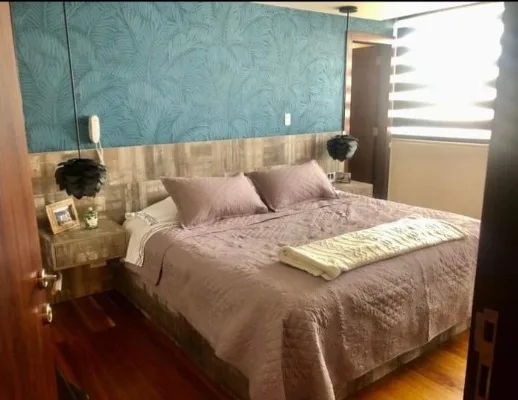Think the Covid rules are nonsensical in Ecuador? Here’s how the French bureaucrats are doing it

Lining up for ice cream in Paris this month next door to a shuttered clothing store.
By Roger Cohen
Three French lockdowns, and counting, over the past 13 months have been many things, among them a rare opportunity for the formidable national bureaucracy of about 5.6 million public servants to display their gift for the complication of lives.
 With the announcement of the third Paris lockdown last month to try to control the spread of the coronavirus, an apotheosis of the absurd was reached.
With the announcement of the third Paris lockdown last month to try to control the spread of the coronavirus, an apotheosis of the absurd was reached.
A dense, two-page version of the notorious “attestation,” a government form to be completed anytime one leaves home, was so convoluted that it tied the Interior Minister’s spokeswoman in verbal knots trying to explain it. The document had metastasized with each lockdown into an ever more ungainly monster.
Which of 15 boxes to check? That you planned to walk one kilometer with your dog, the maximum allowed, or up to 10 kilometers with your children? Would you be allowed 11 kilometers if you took the kids and the pet? What if Fido wanted to walk 10 kilometers and little Mathilde none?
How to get your head around hairdressers, vendors of electronic cigarettes, video game outlets and chocolatiers being deemed essential stores, and so allowed to open, but shoe shops, beauty salons, clothing boutiques and department stores being forced to close?
Familiarity with the labyrinthine thought processes of the French functionary was clearly needed. France, as one former prime minister, Georges Clemenceau, observed, “is an extremely fertile country: You plant functionaries and taxes grow.”
“The document is complex,” Camille Chaize, the Interior Ministry spokeswoman, conceded. But she suggested that the distances permitted for each activity were self-explanatory. One kilometer, for example — a little over half a mile — was plainly the radius for a dog to urinate, she argued.
Still, it seemed far from self-explanatory that for shopping of “first necessity,” the document allowed 30 kilometers (19 miles) and even further for “professional” purchases.

“Nonessential” items are surrounded by red-and-white tape, off limits at a store in Paris.
Before I could exploit such unexpected latitude — once I figured out what counted as “first necessity”— the government nixed the document, which collapsed within 24 hours under the weight of its absurdity after being denounced as a “multiple-choice quiz” by Valérie Boyer, a senator for the center-right Republicans.
Instead of having to answer a bunch of questions, mere proof of residence now suffices to go anywhere within 10 kilometers of home for an unlimited time. But not, of course, after the 11-hour curfew, which was slightly relaxed to start at 7 p.m. instead of 6 p.m.
There is a presidential election a year from now in France, so a restriction (lockdown No. 3) had to be offset by a concession to voters (an extra hour before the curfew for an aperitif).
The French are fed up, and President Emmanuel Macron has to find a delicate balance between tamping down the virus and not pushing an already exasperated public into outright revolt with further restrictions on movement.
The lockdowns have cut the social fabric of life, whose nexus is the table, where grumbling and laughter (including about the bureaucracy) gets into high gear.
Despite the reforming ambition of successive presidents — Jacques Chirac spoke of the “obesity of the state” in 1986 — the number of functionaries has grown by over one million in the last 30 years and now represents 22 percent of the entire work force. They are resilient.
They also provide support unimaginable in the United States. Since arriving here four months ago, I have had a serious bicycle accident that resulted in two hospitalizations, a full brain scan and other tests. For all of this, I was charged about $250. French universal health care works, as does the welfare state. There are free Covid test pop-up tents all over Paris. The tightly organized lockdowns have stopped the pandemic from getting worse.

At the Bois de Boulogne on the edge of Paris. Taking your dog for one-kilometer walks is allowed.
Still, one can get too much of a good thing.
I recently rented an apartment and needed to furnish it. As a result, I found myself at Castorama, a sort of D.I.Y. emporium with a few Gallic flourishes, that was open only because its surface area did not exceed the 10,000-square-meter limit (a little over 100,000 square feet) set by the government for such stores.
In truth, the store was only kind of open. Red-and-white tape, as if strung up around a crime scene, surrounded some sections, including the one for lamps, sconces and other wall light fixtures.
This was how I learned more about essential vs. nonessential items under the lockdown. I could buy electric cheese-heating raclette makers in a dozen different models. I could buy toasters galore, pans in all shapes, any form of home stereo equipment — but not a desk lamp.
At Boulanger, an electronics store, smoothie makers and vacuum cleaners were available for sale, but not refrigerators, stoves or other large appliances that had been roped off.
How this comported with controlling the coronavirus — over 100,000 people in France have died from it, and more than five million have been infected — was not immediately clear.

Place des Vosges in Paris last week. The curfew starts at 7 p.m.Credit…
The sheer intricacy of the bureaucratic obtuseness overwhelmed me. I could not help wondering whether some fraction of the many hours devoted to coming up with such regulations might have been better used speeding the vaccines to more people. France has up to now underwhelmed in getting its population vaccinated.
The country’s shoe repair stores are open, even if you can’t buy new shoes. Its florists are open, but not kitchenware stores. Its frozen goods shops are open, but not gift shops. Bookstores are open now, although they were closed in the first lockdown. All restaurants, bars and cafes are closed. Mr. Macron has suggested that some easing of restrictions will start on May 3 — maybe.
One sign I recently passed in a shuttered beauty salon read: “Contrary to ‘hairdressers,’ it seems we are not essential to well-being. Injustice!”
As for lingerie and underwear stores, deemed nonessential and so closed, they have embarked on a national protest involving sending lacy panties every day to Prime Minister Jean Castex from all over France.
I know there has to be a logic to what’s open and what’s closed. France, after all, still has a commissioner general for planning, as if the Soviet Union had never disappeared. The country proceeds with methodical purpose based on the analysis and forecasts of highly trained public servants, formed in elite schools.
Still, an overwhelming question grips my entire being: Why these apparently arbitrary rules?
I asked a Castorama store assistant to explain why, for example, the lamps I coveted were off limits while I could buy a crepe maker.
“I don’t really know,” she said. “But, of course, you can always use a candle.”
__________________
Credit: The New York Times


















